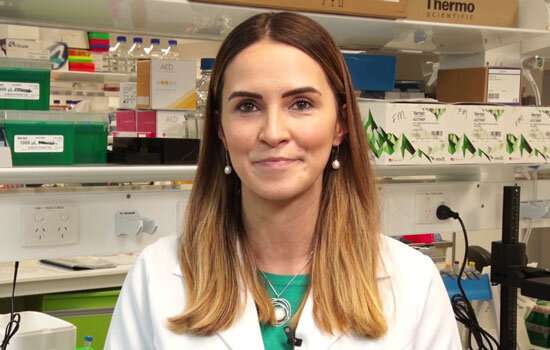Cardiovascular disease researchers consider leaving sector, survey warns

Research by Monash University and the Australian Cardiovascular Alliance has painted a concerning outlook for the sector with many scientists considering leaving due to lack of job and financial security.
The research, published today in the Heart, Lung and Circulation journal is disturbing given that cardiovascular disease (CVD) – Australia's biggest killer—causes one death every 12 minutes and also leads to significant disability from the after-effects of stroke, heart attack and heart failure.
CVD is the nation's second largest direct health care cost at $10.4 billion a year.
Associate Professor Francine Marques, from the Monash University School of Biological Sciences is a senior author of the study in which more than 500 cardiovascular researchers were surveyed by the peak leadership body, the Australian Cardiovascular Alliance (ACvA). Associate Professor Marques is also a member of the ACvA where she chairs the Emerging Leaders Committee.
The survey, which was distributed in 2019 across Australian cardiovascular societies and councils, universities and research institutes found that of the over 500 cardiovascular researchers who responded:
- only 23 percent have permanent employment;
- as many as 68 percent have considered leaving CVD research, and
- a worrying 91 percent would leave CVD research in the absence of secure funding in coming years.
"A particularly troubling finding of the survey was that job security and uncertainty were having a greater impact on female researchers, with almost a third saying they were unsure about ongoing employment, and as many as 80 percent considering leaving the field of CVD research altogether," Associate Professor Marques said.
"This is compared to just under a fifth of male respondents who had similar employment concerns, and two-thirds of men considering leaving the field," she said.
Associate Professor Marques suggested the highly coordinated and strategic approach to research and translation we have seen doing the pandemic could be used as a template for action that could be rolled out across other medical areas such as cardiovascular disease.
Study author and AcVA President Gemma Figtree, a Professor of Medicine at the University of Sydney, said the survey findings clearly demonstrate that we need a more strategic, coordinated and diversified approach to funding and in-kind support and much closer collaboration with key government, health, philanthropic and industry stakeholders to create a more sustainable future for the sector, to ensure there is significant impact from the funding that is invested.
"Traditional approaches to research while beneficial were not sufficient to truly tackle our nation's biggest killer, retain the best and brightest, and to attract new talent to this important area of research," Professor Figtree said.
"Australian cardiovascular researchers have a strong reputation for delivering high quality outcomes and "recent substantial investment by the Federal government ($220 Million Mission for Cardiovascular Health), and by the NSW government ($150 Million) provides a much-needed catalyst for the sector."
Professor Figtree said researchers also need strategic approaches to create strong and enduring collaborations across the research pipeline, provide mentorship and leadership and enable an efficient and impactful research sector, which can continue to thrive.
According to the study, the top initiatives that CVD researchers perceived that would help increase retention in the sector were greater job security (76 percent) and strategic and sustainable investment in CVD research (72 percent).
"More than 150,000 Australians aged 45 to 74 years will have a cardiovascular event like a heart attack or stroke over the next five years," Professor Figtree said.
"Strategic investment in this sector will not only save lives, but will also make a significant contribution to job growth and economic recovery."





















